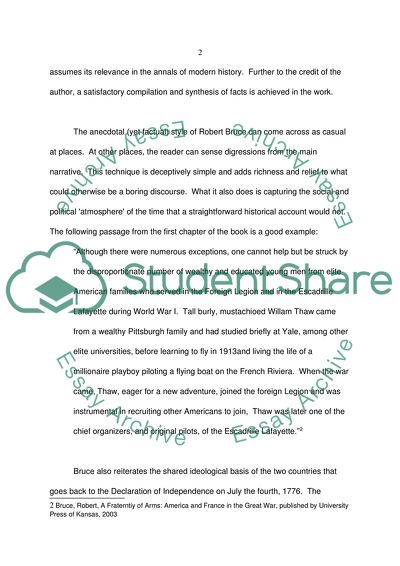Cite this document
(A Fraternity of Arms - American and France in the Great War Book Report/Review - 1, n.d.)
A Fraternity of Arms - American and France in the Great War Book Report/Review - 1. Retrieved from https://studentshare.org/politics/1748536-a-fraternity-of-arms-american-france-in-the-great-war
A Fraternity of Arms - American and France in the Great War Book Report/Review - 1. Retrieved from https://studentshare.org/politics/1748536-a-fraternity-of-arms-american-france-in-the-great-war
(A Fraternity of Arms - American and France in the Great War Book Report/Review - 1)
A Fraternity of Arms - American and France in the Great War Book Report/Review - 1. https://studentshare.org/politics/1748536-a-fraternity-of-arms-american-france-in-the-great-war.
A Fraternity of Arms - American and France in the Great War Book Report/Review - 1. https://studentshare.org/politics/1748536-a-fraternity-of-arms-american-france-in-the-great-war.
“A Fraternity of Arms - American and France in the Great War Book Report/Review - 1”, n.d. https://studentshare.org/politics/1748536-a-fraternity-of-arms-american-france-in-the-great-war.


